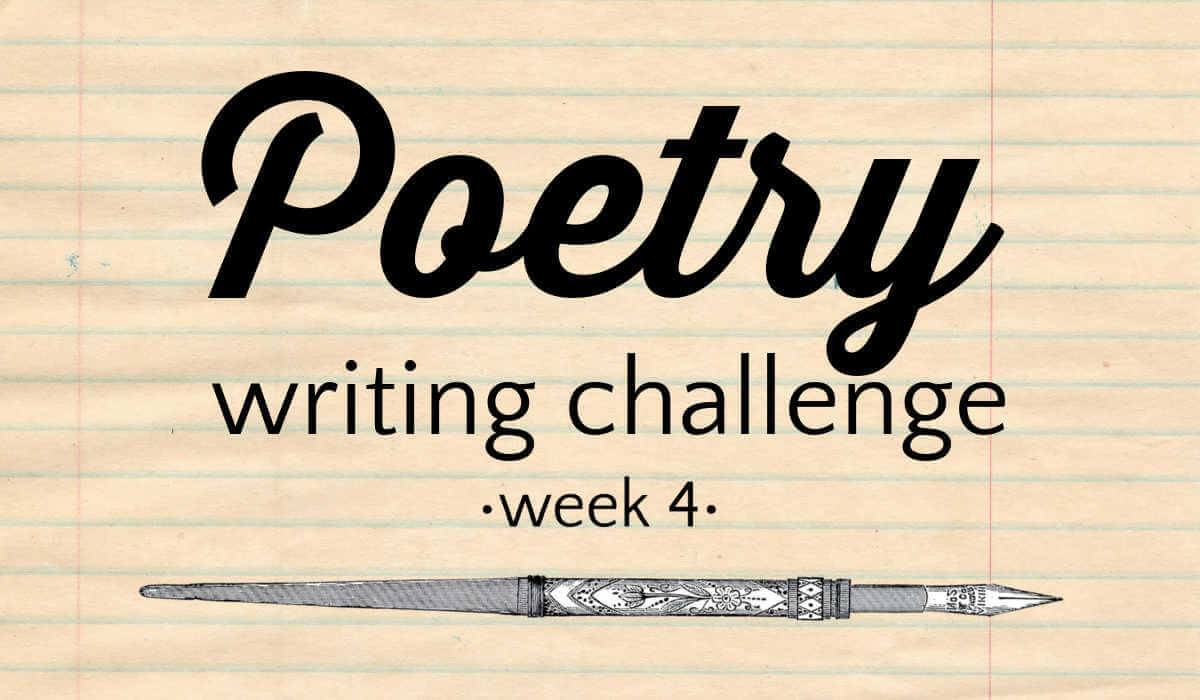Welcome to the fourth and final week of the poetry writing challenge! I hope it has been as enjoyable for you and your kids as they have been for us.

As stated in the introduction to the challenge, completing the assignments can be done spontaneously, which is exactly what happened in our household. Throughout the past few weeks find myself suddenly chatting with the boys about the chosen poetry topic in those hard to fill moments like getting ready for bed, walking home from school, as well as family dinner time.
To recap, here is what we have done so far:
- Week 1: Simile and Acrostic
- Week 2: Alliteration and Color Poems
- Week 3: Onomatopoeia and Couplets
However, you can jump into the challenge any time and complete the weeks in any order!
The other pleasant surprise about this writing challenge is how funny it is. Every exercise and activity makes us dissolve into giggles! Originally I had planned the final week to teach metaphor, but based on our experience, "hyperbole" seemed like a great way to end the challenge on a hilarious note.
Writing Challenge #1: Hyperbole
Write several hyperbolic sentences or phrases.
What is hyperbole? An hyperbole is an exaggerated statement or comparison that is not meant to be taken literally. Some of us (*ahem* cough-cough) speak frequently in hyperbole. Of course, I would never do that, not in a million years.
Examples of hyperbole in poetry:
I’ll love you, dear, I’ll love you
Till China and Africa meet,
And the river jumps over the mountain
And the salmon sing in the street,
I’ll love you till the ocean
Is folded and hung up to dry- W.H. Auden, from "As I Walked One Evening"
I'm making a pizza the size of the sun,
a pizza that's sure to weigh more than a ton,
a pizza too massive to pick up and toss,
a pizza resplendent with oceans of sauce.-Jack Prelutsky, from "A Pizza the Size of the Sun"
Extension Activities
- Find examples of hyperbole in children's poetry books or picture books.
- Illustrate your hyperboles.
- Draw a picture representing a hyperbole and have others guess what it is.
- Have a hyperbole contest. Keep trying to one up each other to see who can come up with the most outrageous statement. Try to include lots of descriptive words.
Writing Challenge #2: Haiku
Write a haiku.
Haiku is often one of the first poetry forms that kids learn but I've left it for last. We've written haiku before and I am curious to see how my kids' haiku turn out after the last 3 weeks of learning and practicing different literary devices.
What is haiku? Haiku is a traditional form of Japanese poetry. Traditionally, nature inspires the content of the poems but contemporary haiku often cover a range of subjects. It has a formal 17-syllable structure. The first line is 5 syllables, the second is 7, and the last is 5. (Haiku has a rich tradition and there are many nuances to the "rules" - but I am sticking with the modern basics here. This is not an advanced poetry class!)
Extension activities:
- Illustrate your haiku
- Check out titles from our list of haiku books for kids.
- Read about the history of haiku
- Make a haiku tunnel book!
That's the end of our Poetry Writing Challenge for National Poetry Month! Here's what to do next:
Did you complete any or all of the challenges? Please let us know! How did it go? Was it fun? Did you modify any of the ideas in a way that worked for your family? I'd love to hear your stories!




Arokodare michael says
Super.It is really great